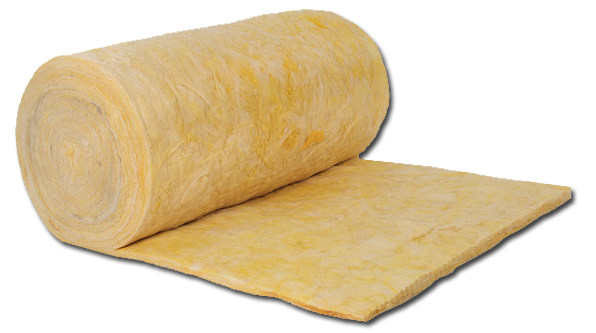Glass wool is a component manufactured in blast furnace from silica and sodium, agglomerated with synthetic resins, developed specifically to improve the insulation end sounds of construction.

Glass wool has the characteristic of thermal insulation. Acting by diffusion and absorption of sound waves, reduces the reverberation, makes the sounds more intelligible and reduces the noise level of the environments in a few decibels.
Acoustic discomfort is a phenomenon that we can't understand without specific equipment, but is present and can cause irritation and fatigue to the occupants of the environment, with the consequent reduction of working capacity.
The insulation helps to control the reverberation of sound in all environments, especially in large areas: the higher the right foot, the greater the reverberation of sounds (this phenomenon exacerbated by the apparent metal surfaces).
Glass wool felt also isolates the thermal environment. The application of the insulation provides the reduction of heat exchange with the outside world, helping to minimize temperature variations, making it easier to obtain thermal comfort in buildings. In rooms with air conditioning, decreases the efforts of equipment with consequent energy saving.
Midifelt
Felt consisting of glass wool, crowded with synthetic resin, used for termoacústica insulation of metal roofing with tiles system sandwich. It is suitable for application on roofs of small, medium and large.
Ideal for use in metal tiles. Can be installed also on existing roofs, and in this case, must be installed on the roof and then coated with the new one. It is recommended that a service engineer check the structure and strength of the cover.
Below, in the table, are shown the contents of thermal resistance (RT) and thermal conductivity (k) of the glass at a temperature of 24°C:
